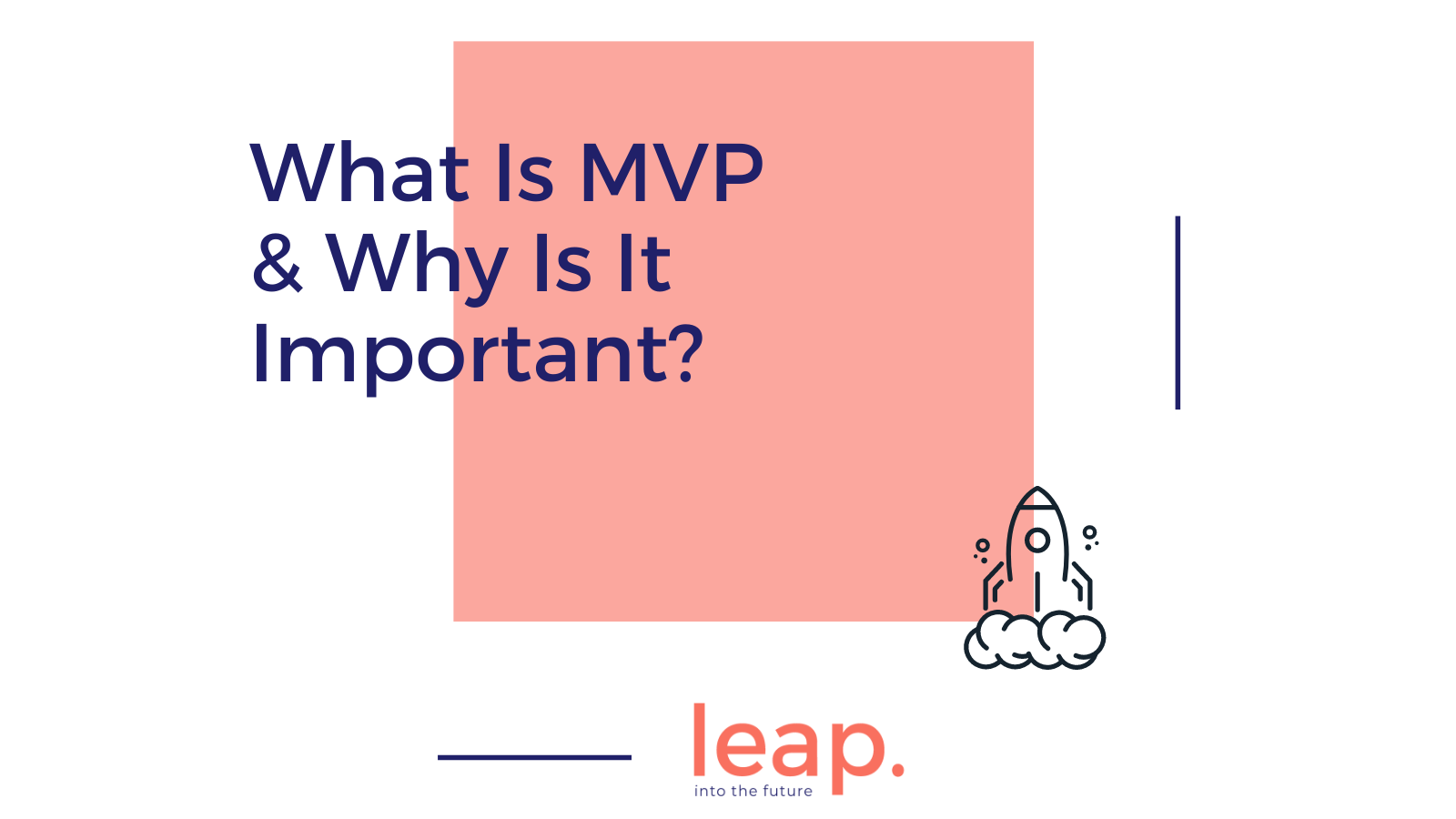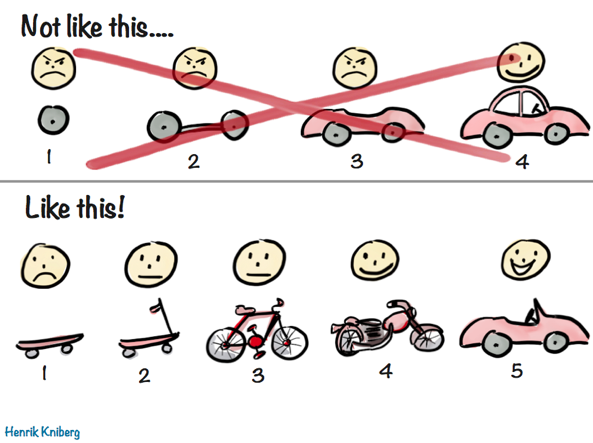PROBLEM: Teams often brag, “We added 800 new features.” Some even consider feature count a badge of honor. Unfortunately adding features doesn’t necessarily improve the business case. It may take longer, make the product less usable, and carry more risk.
SOLUTION: The MVP is the right-sized product for your company and your customer. It is big enough to cause adoption, satisfaction, and sales, but not so big as to be bloated and risky. Technically, it is the product with maximum ROI divided by risk. The MVP is determined by revenue-weighting major features across your most relevant customers, not aggregating all requests for all features from all customers.”
This concept, which was first introduced and explained by Frank Robinson in his book “MVP: How it Works”, entered our lives in 2001. The concept is also defined as “A new product release that allows a team to gather the maximum amount of verified learning about customers with minimal effort.” by Eric Ryes and it has become well known.
So why is MVP, one of the most important Lean Startup techniques, important for startups?
For startups, which are complex and dynamic by nature, it is of great importance to reach the most accurate and risk-free product without wasting time and money. It would not be wrong to say that it is not possible to determine exactly what the customer wants and needs at the first stage.
MVP, that is, products prepared with minimum effort but ready to use and capable of meeting basic needs, provide entrepreneurs with the opportunity to test their ideas. It offers the opportunity of trial and error, and as a result, it reveals the product that the customer finds the most accurate and most valuable.
35% of companies fail because the market does not need the product. We can say that it is one of the best things that can happen to a company to learn what the users want and need as a target product, before launching the product fully-fledged. Although it is everyone’s dream to make money by bringing the final product to market as soon as possible, who cares to rush it and waste time and money on a product that does not really need/doesn’t meet the needs of the market?
At the very beginning of the product development cycle, listen to the first users of your product, take their feedback seriously, be open to the idea of uncomplicating the product and pivoting it to reveal the core and product that users really want!
Resources
https://www.cbinsights.com/research/startup-failure-reasons-top/
http://www.startuplessonslearned.com/2009/08/minimum-viable-product-guide.html




